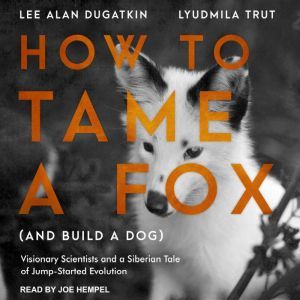

How to Tame a Fox (and Build a Dog)
Visionary Scientists and a Siberian Tale of Jump-Started Evolution
Author: Lee Alan Dugatkin, Lyudmila Trut
Narrator: Joe Hempel
Unabridged: 7 hr 17 min
Format: Digital Audiobook Download
Publisher: Tantor Media
Published: 09/05/2017
Categories: Nonfiction, Nature, Animals, Science, Life Sciences
Synopsis
Most accounts of the natural evolution of wolves place it over a span of about 15,000 years, but within a decade, Belyaev and Trut's fox breeding experiments had resulted in puppy-like foxes with floppy ears, piebald spots, and curly tails. Along with these physical changes came genetic and behavioral changes, as well. The foxes were bred using selection criteria for tameness, and with each generation, they became increasingly interested in human companionship. Trut has been the lead scientist on this work since Belyaev's death in 1985, and with Lee Dugatkin, biologist and science writer, she tells the story of the adventure, science, politics, and love behind it all.
